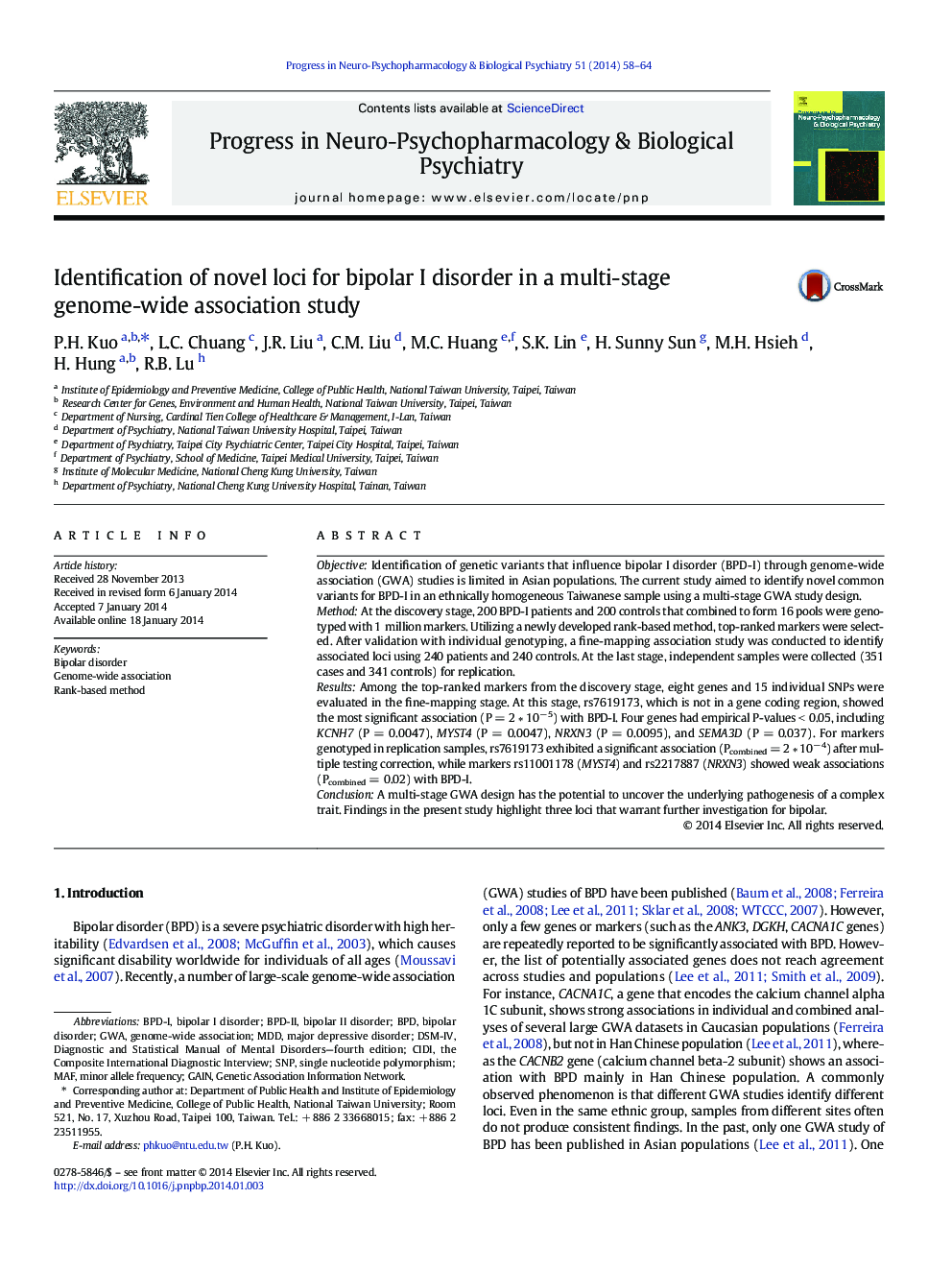| کد مقاله | کد نشریه | سال انتشار | مقاله انگلیسی | نسخه تمام متن |
|---|---|---|---|---|
| 2564840 | 1561043 | 2014 | 7 صفحه PDF | دانلود رایگان |

• Marker rs7619173 at 3q26.33 in none gene coding region exhibited strong association.
• Three genes KCNH7, MYST4, and NRXN3 were associated with bipolar I disorder.
• The rank-based method could accurately identify associated genetic variants.
ObjectiveIdentification of genetic variants that influence bipolar I disorder (BPD-I) through genome-wide association (GWA) studies is limited in Asian populations. The current study aimed to identify novel common variants for BPD-I in an ethnically homogeneous Taiwanese sample using a multi-stage GWA study design.MethodAt the discovery stage, 200 BPD-I patients and 200 controls that combined to form 16 pools were genotyped with 1 million markers. Utilizing a newly developed rank-based method, top-ranked markers were selected. After validation with individual genotyping, a fine-mapping association study was conducted to identify associated loci using 240 patients and 240 controls. At the last stage, independent samples were collected (351 cases and 341 controls) for replication.ResultsAmong the top-ranked markers from the discovery stage, eight genes and 15 individual SNPs were evaluated in the fine-mapping stage. At this stage, rs7619173, which is not in a gene coding region, showed the most significant association (P = 2 ∗ 10− 5) with BPD-I. Four genes had empirical P-values < 0.05, including KCNH7 (P = 0.0047), MYST4 (P = 0.0047), NRXN3 (P = 0.0095), and SEMA3D (P = 0.037). For markers genotyped in replication samples, rs7619173 exhibited a significant association (Pcombined = 2 ∗ 10− 4) after multiple testing correction, while markers rs11001178 (MYST4) and rs2217887 (NRXN3) showed weak associations (Pcombined = 0.02) with BPD-I.ConclusionA multi-stage GWA design has the potential to uncover the underlying pathogenesis of a complex trait. Findings in the present study highlight three loci that warrant further investigation for bipolar.
Journal: Progress in Neuro-Psychopharmacology and Biological Psychiatry - Volume 51, 3 June 2014, Pages 58–64